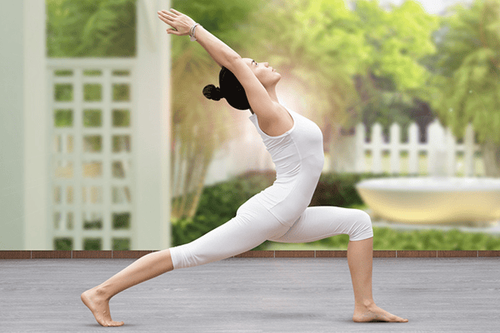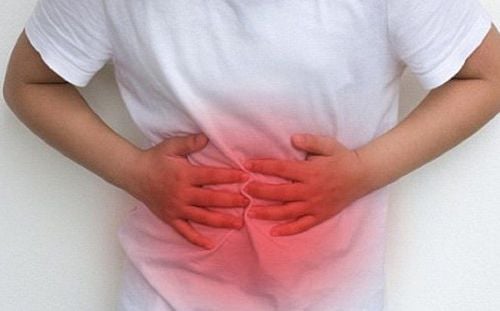This is an automatically translated article.
Anxiety can affect just about every activity in our lives, but it can often make us feel so much worse during a quiet night, leaving many people unable to fall asleep or wake up at night. early morning hours. Not only is this exhausting and frustrating, but poor sleep can make us feel more anxious the next day. What are the causes, symptoms and treatment of nighttime stress?1. Why is anxiety worse at night?
Anxiety is a normal human emotion characterized by feelings of nervousness and tension. You may find yourself nervous in different situations, such as a first date or a job interview. Sometimes, however, anxiety can persist for longer than usual. When this happens, it can affect your daily and even nightly life.One of the most common times when people feel anxious is at night. Many clinical trials have found that lack of sleep can be the cause of your anxiety. Historically, research has also shown that anxiety disorders are associated with reduced sleep quality. Treating nocturnal anxiety and addressing sleep problems are important steps in improving our quality of life.
Many people always find their anxiety worse at night. They should know that they are not alone in this, says clinical psychologist Elaine Ducharme. “In our society, people even spend a lot of money to get rid of anxiety,” she said.
She explains that the symptoms of anxiety are actually the body's defense response. "Worry keeps you alert to dangers. It's actually a response that helps protect us. The problem with people who are worried is that there's usually no need to worry. The danger to them. feeling is not real and there is no need to run away from it.”
Licensed mental health counselor Nicky Treadway explains that, during the day, most people with anxiety are distracted and exercised. “They are feeling the signs of anxiety, but they have other things to take care of throughout the day, so the anxiety seems to subside.” But when anxiety strikes at night, Treadway explains that the body is switching to a natural circadian rhythm. “As night falls, your body’s production of melatonin increases and our bodies are asking us to rest,” she says. But for someone with anxiety, it can be extremely difficult to enter a state of complete relaxation. So their bodies are trying to adapt to that circadian rhythm.” Ducharme says that anxiety attacks are most frequent between 1:30 and 3:30 a.m. “At night, things are usually quieter. There are fewer stimuli that distract us, and therefore, anxiety rises.”
2. Causes, symptoms and treatment of the disease
2.1. Symptoms of Anxiety There are many symptoms of anxiety. Everyone experiences anxiety differently. Symptoms can occur at any time of the day, morning, or night. Common anxiety symptoms include:Feelings of nervousness, restlessness or anxiety Difficulty concentrating Difficulty falling asleep or staying asleep Gastrointestinal problems Another symptom a person experiences Anxiety can also be experienced as a panic attack. A panic attack is an intense and intense fear, often accompanied by physical manifestations. Common symptoms of panic attacks include:
A feeling of impending doom Increased heart rate and chest pain Shortness of breath and tightness in the throat Sweating, chills and hot flashes Dizziness or lightheadedness Feeling that everything around us is not real. In some cases, we may even wake up from a night terror. Nocturnal (nocturnal) panic attacks have the same signs and symptoms as regular panic attacks, only they occur while we are asleep. If you experience nocturnal panic attacks, it can be difficult for many people to calm down and fall asleep again.

Lo lắng vào ban đêm có thể gây khó ngủ
There is very little scientific research on nighttime anxiety. However, there are many reasons why our anxiety may be worse at night. People with anxiety may feel that their mind is spinning and that you can't stop your thoughts. They can focus on the worries of the day or predict the things on your to-do list for the next day. This perceived “stress” can cause the body to increase its production of adrenaline, making it extremely difficult to fall asleep.
However, there is a lot of research on how anxiety can affect sleep and vice versa. According to the Anxiety and Depression Association of America (ADAA), research shows that sleep disturbances occur in most patients with psychosis.
In a small 2015 study: Researchers examined the relationship between cognitive behavioral therapy (CBT) and sleep quality in people with anxiety. The researchers found that both sleep quality and sleep latency (time to fall asleep) improved in participants who responded to this cognitive behavioral therapy. Researchers believe that targeting sleep problems during anxiety treatment may be beneficial for people who have trouble sleeping.
2.3. Treating anxiety It's important to remember that it can take time to find the right treatment for each person's anxiety. As a result, patients and doctors can choose to use a variety of treatments.
Treat underlying conditions There are a number of other health problems that can cause anxiety symptoms or worsen anxiety symptoms. These include:
Metabolic cardiovascular disease Hyperthyroidism Type 1 and type 2 diabetes Chronic pain Irritable bowel syndrome Certain brain tumors If any of these conditions are causing nocturnal anxiety , doctors will prescribe symptomatic treatment before thinking about methods to reduce stress and reduce anxiety.
Psychotherapy There are many forms of psychotherapy that can treat anxiety. One of the most well-established methods is cognitive behavioral therapy (CBT). Cognitive behavioral therapy is a form of psychotherapy that encourages changing a person's way of thinking to improve their behavior and mood. However, this therapy takes at least 12-16 weeks to see results.
Medication In many cases, treating anxiety requires a dual approach. Both psychotherapy and medication can be used in combination for best results. There are different types of medications that a doctor may prescribe for a patient. They can discuss the pros and cons, the availability of a drug, and more. with the patient. The most common medications prescribed for acute anxiety attacks are benzodiazepines. The most common medications prescribed for persistent anxiety are antidepressants.

Có nhiều lý khiến tình trạng lo âu trở nên tồi tệ hơn vào ban đêm
Please note that the US Food and Drug Administration does not regulate the quality or purity of supplements as it does drugs. Talk to your doctor before trying a supplement to make sure there are no interactions.
Meditation Meditation is the practice of mindfulness. Evidence suggests that even a single session of meditation can be beneficial in reducing anxiety. Even more benefits can be seen in the long term. Meditating right before bed can be a great way to reduce nocturnal anxiety.
Deep Breathing Deep breathing is a great way to reduce anxiety and stress. Deep breathing can slow your heart rate and help improve blood pressure. If you are experiencing a panic attack at night, try taking deep breaths to reduce the panic attack.
Healthy Sleep Habits One of the most important ways to reduce anxiety at night is through healthy sleep habits. Making sure you feel happy and comfortable in your own bedroom will help improve the quality of your sleep.
There are many ways to establish good sleep habits to ensure better and longer sleep such as:
Daily exercise: Exercise can help improve both the quality and duration of sleep. If we feel anxious at night, exercising in the early or late afternoon can help us feel sleepy and fall asleep more easily. Besides, exercise is not only good for improving your sleep. It can also help reduce symptoms of anxiety. Avoid stimulants before bed: Stimulants can worsen anxiety symptoms. In addition, because stimulants increase the activity of the body, taking them before bed can make it more difficult for us to fall asleep. The National Sleep Foundation warns that alcohol, tobacco, and caffeine can all negatively affect sleep, so be sure to avoid these before you start sleeping.

Tập thể dục hàng ngày có thể giúp bạn giảm căng thẳng vào ban đêm
Please dial HOTLINE for more information or register for an appointment HERE. Download MyVinmec app to make appointments faster and to manage your bookings easily.
Reference source: healthline.com












